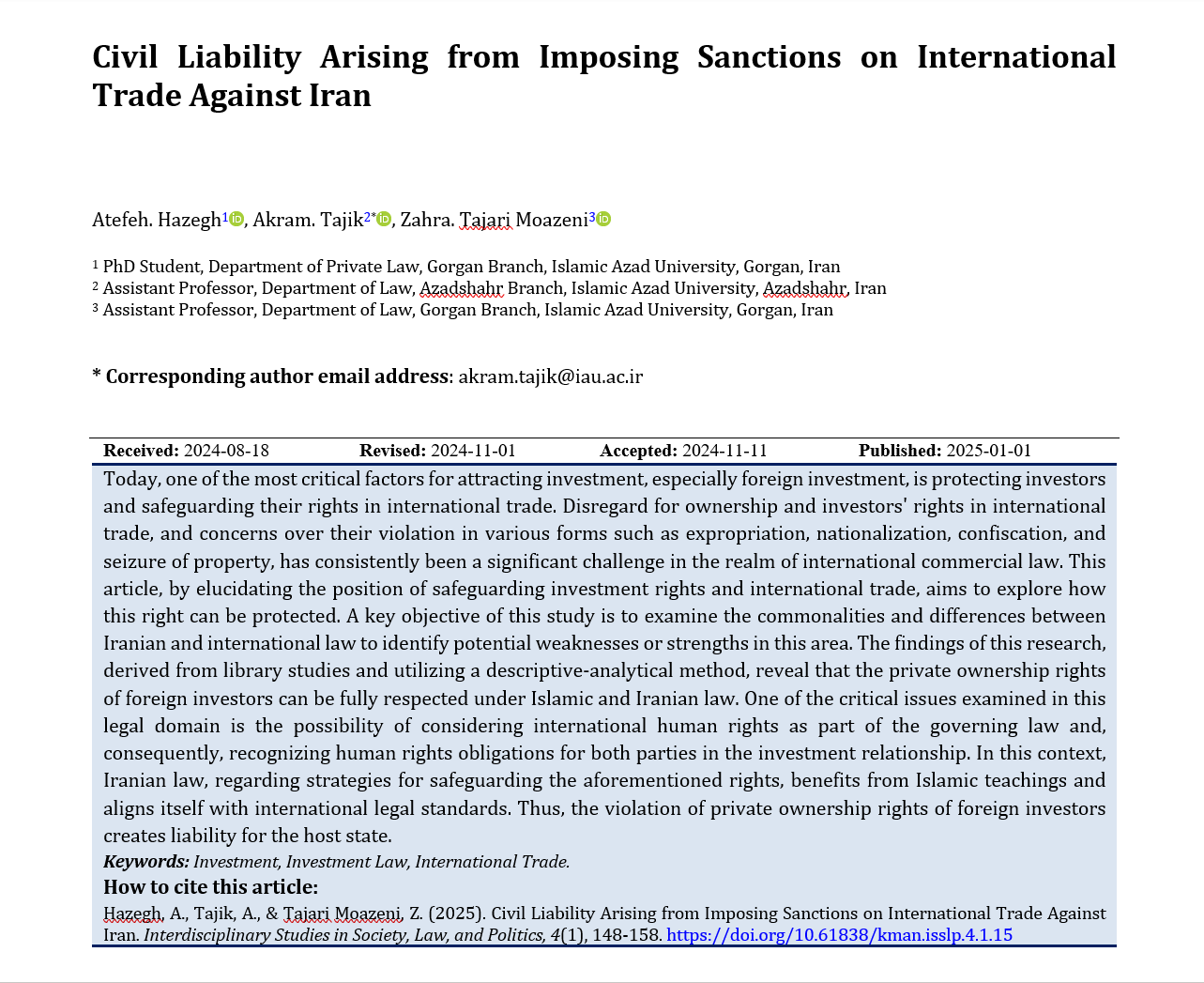Civil Liability Arising from Imposing Sanctions on International Trade Against Iran
Keywords:
Investment, Investment Law, International TradeAbstract
Today, one of the most critical factors for attracting investment, especially foreign investment, is protecting investors and safeguarding their rights in international trade. Disregard for ownership and investors' rights in international trade, and concerns over their violation in various forms such as expropriation, nationalization, confiscation, and seizure of property, has consistently been a significant challenge in the realm of international commercial law. This article, by elucidating the position of safeguarding investment rights and international trade, aims to explore how this right can be protected. A key objective of this study is to examine the commonalities and differences between Iranian and international law to identify potential weaknesses or strengths in this area. The findings of this research, derived from library studies and utilizing a descriptive-analytical method, reveal that the private ownership rights of foreign investors can be fully respected under Islamic and Iranian law. One of the critical issues examined in this legal domain is the possibility of considering international human rights as part of the governing law and, consequently, recognizing human rights obligations for both parties in the investment relationship. In this context, Iranian law, regarding strategies for safeguarding the aforementioned rights, benefits from Islamic teachings and aligns itself with international legal standards. Thus, the violation of private ownership rights of foreign investors creates liability for the host state.
Downloads






